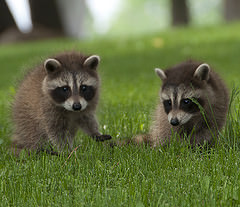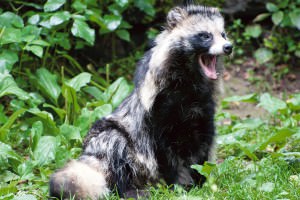The Dangers Of Harbouring Wildlife In Your Home
 So I’m not talking about keeping a snake you’ve found, I’m talking about the health risks of stray wildlife like raccoons and squirrels that have made a nest in your home.
So I’m not talking about keeping a snake you’ve found, I’m talking about the health risks of stray wildlife like raccoons and squirrels that have made a nest in your home.
And it is dangerous. Let me put together a scenario for you to imagine that might put harbouring wildlife in your home into a new perspective.
Imagine you’ve seen a few baby raccoons walking around your roof. You think to yourself “hey, it’s not too bad, maybe I’ll just let them stay in my attic for the winter. They’ll probably leave after the winter and there’s nothing wrong with giving them a little heat during the cold days”.
Well, generally speaking, the animals themselves will probably do humans no harm and if they reside in your attic, that’s probably where they’ll stay – squirrels too. Most wildlife prefer to stay as far away from humans as possible, and if they feel they can’t be reached by humans in your attic, chances are that’s where they’ll stay. Pretty safe right? Not at all.
Wildlife in the home pose a serious health risk
As I mentioned in my opening paragraph, keeping frogs, turtles, and snakes you’ve found, and are keeping them in a cage or aquarium, is pretty much safe. Those wildlife animals have their health risks as well, but for the most part all is contained within the container you’re keeping them in.
If you clean the container on a regular basis, you’ll probably do alright. But it’s a much different story when it comes to larger wildlife like raccoons, squirrels, wild birds, skinks and rodents. These types of animals generally don’t offer a person much in regards to keeping them as pets and are usually not taken as pets by most people.
With that said, these kinds of wildlife, even though they aren’t considered pets, still like to harbour in homes and business establishments, and since these animals make residence in your home, without being contained in a cage or aquarium, their urine and feces can become a very serious health risk.
How urine and feces can spread from the wildlife’s nest
This health risk is in my opinion one of the most severe risks posed by harbouring wildlife in your home. The following information was provided to my by a local wildlife control company that told me the story. So listen up because this could happen to you.
What happened was there was a family of raccoons that made a nest in a residence’s attic, right above the kitchen. Everything seems fine and dandy for most of the winter. They didn’t bother the raccoons and the raccoons didn’t bother them. Occasionally the family would hear rumblings in their attic but for the most part they seems quite unobtrusive.
Then one morning, the mother of the house went into the cupboard to get her children some cereal for breakfast. As usual she reached into the cupboard and pulled out the cereal box. Well this time, she noticed the bottom of the cereal box was drenched in some form of liquid. Needless to say she threw out the cereal box but she was unable to determine why the box was soaked.
After notifying her husband whom took a deeper look into the problem. He traced the watery leak to his attic, just where the raccoons had built their nest. Not only that, but the liquid substance that trickled down into their cupboard wasn’t just water, it was a mixture of urine and feces and whatever else the raccoons had dragged into the attic.
Here’s an example of a poor woman who found raccoon droppings on her roof and discovered that even though the raccoons aren’t in her home, there is still a great health danger.
Remove the wildlife
Yes, removing the wildlife from your home is your safest bet. It may seem like a really sweet gesture and you may feel like the most humane person on your block, but in the end, if you harbour wildlife, you can expect not only damage but extreme danger to your health or the health of your family or your employees.
Do raccoons come down at night?
Previously I mentioned that for the most part raccoons will stay in your attic, close to their nest. But once the area is clear from any signs of human life, a raccoon would dare to make its way to the kitchen. And why not? That’s where all the food is and they know it.
The times when we can expect wildlife to be in your kitchen is when we’re sleeping at night. At night, everything is calm and quiet and to a hungry animal, your food is as good as anyones. It’s times like these where people or children end up going into the kitchen and encountering the pest or wake up to see the damage the pest has created in your kitchen in the morning.
Tips on dealing with wildlife in your home
 OK so here are the tips you should follow if you encounter wildlife in your home or attic:
OK so here are the tips you should follow if you encounter wildlife in your home or attic:
- call a wildlife control company, preferably a humane one
- do not provoke, speak to, or feed the wildlife at all
- determine where there nest is in relation to your home
- make a note of all damage or potential damage and provide this information to the wildlife removal company
- keep your children far away from them
- if there is any damage, show the animal control company so they can properly clear, repair and sanitize the area
It’s very straight forward. Having wildlife live in your home seems like a cool idea and of course your children will love it, but in the end, your whole family is in dire danger – from being bitten or attacked or through being exposed to their excrement.
Do the right thing. Get in touch with your local pest removal company and keep your family safe.
Great tips for Wild animal rescue from your home. Thanks for share this.
Leave your response!